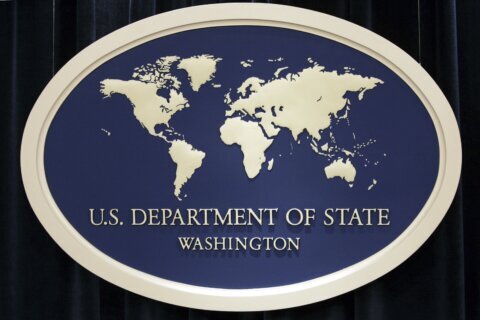Change is afoot in the rental industry, and it could help renters better understand the costs that a potential property presents — not to mention more easily qualify for that property in the first place.
It all comes down to the “Blueprint for a Renters Bill of Rights,” a White House initiative announced earlier this year that aims to create a more equitable and transparent market for American renters.
While the 19-page document stops short of proposing any official mandate or policy, many players in the rental world have already taken its tenets to heart, changing their approach to rental listings — and, most importantly, rental fees — over the summer.
Zillow is the most notable of these organizations, but others are evolving their products as well — Apartments.com, AffordableHousing.com, Rent.com and more — and what could result is a rental market that’s better for all parties in the long run, experts say.
[Read: What You Should Know About Tenant Rights.]
More Transparency in Fees and Costs
Zillow’s “Cost of Renting” summary tool is the biggest change to come after the White House’s announcement earlier this year. The new tool, launched in July, allows renters to see a more detailed description of a property’s costs — outside of just the monthly rent. It includes things like security deposits, application fees, pet deposits, parking fees and more, all within a property’s listing on Zillow.com.
“This is basically a way for renters to get a better understanding of the whole cost of renting,” says Michael Sherman, vice president of rentals at Zillow. “So aside from just the monthly rent, there are a lot of fees and other costs that are associated with living in a rental home or apartment. We’re really trying to provide more transparency into those uncertain costs that inevitably add to your monthly amount.”
The U.S. Department of Housing and Urban Development is actually calling for tools such as these — ones that cut down on what the agency calls “junk fees,” according to an announcement released in March.
“Many renters today face fees that are hidden, duplicative or unnecessary as part of the housing search and leasing process,” wrote HUD Secretary Marcia Fudge in a public letter earlier this year. “These fees limit options for renters and strain household budgets, particularly for renters with low and modest incomes who already face high rental cost burdens.”
Zillow’s new tool can help shed more light on these so-called junk fees, but it’s not foolproof. Landlords aren’t required to add in these extra costs and fees when listing a property on Zillow, and those that don’t are still listed on the site. However, they’re strongly encouraged to, and the company is actively educating its property-side users on why including this information isn’t just important but also good for the bottom line.
“Transparency around lease terms and fees are ultimately beneficial to both renters and landlords,” explains Jon Ziglar, CEO of Rent., a rental listings platform. “Renters gain a clearer understanding of the total costs associated with a potential rental, allowing them to better assess their ability to afford a given apartment and to make better household budgets. Landlords receive a higher proportion of qualified applicants who are in a financial position to fulfill the lease terms.”
Rent.com is actively working on expanding its listings to include things like utilities, moving costs and more, and other platforms are making changes, too. Apartments.com has announced a new rental costs calculator it will roll out later this year, and property owners using AffordableHousing.com will now need to disclose all fees and upfront costs to list a property.
According to Alexandra Alvarado, director of marketing and education at the American Apartment Owners Association, this industrywide move toward transparency has been in the works for some time. The White House initiative only sped it up.
“Transparency in the private sector has been trending even prior to the Blueprint being issued,” Alvarado says. “Last year Airbnb adopted pricing transparency showing total booking costs, which has helped their customer satisfaction greatly. It’s been an incentive for hosts to compete by lowering their fees.”
[Read: What Is a Month-to-Month Lease?]
What Renters May See in the Future
These moves toward fee transparency are only a small portion of the changes to result, at least in part, from the White House’s initiatives. Alvarado says she’s seen an uptick in security deposit alternatives, which give renters more financial flexibility in the initial leasing process, as well as property owners being more transparent about qualifying criteria — something that “helps build trust between tenants and their landlords,” she says.
[6 Expert Tips to Get Your Security Deposit Back]
Zillow also has another new tool in the works that will better empower renters. Renters using Zillow’s rent payments platform will be able to report their on-time rents to credit bureaus, which can help them build credit and even improve their chances of qualifying for a property in the future.
“We’re enabling renters to report their positive rental payments that are made through our platform back to all credit bureaus,” Sherman says. “This will inevitably improve credit scores, which is a key factor in rental screening criteria.”
Other platforms are looking at ways to help qualify renters without credit scores. Tenant analysis platform Matrix Rental Solutions, for instance, produces an “ability to pay” score for landlords, which relies on things like assets, income and rental history rather than traditional credit scoring factors. This approach “ensures that a broader demographic, including minorities, immigrants and younger individuals, have better access to rental opportunities,” Matrix’s founder and CEO Sipho Simela says.
However you slice it, one thing’s for sure: Things are starting to look different for renters searching for a property — and will likely stay that way for a while.
As Sherman puts it, “I think the White House advocating for this is a good indication of the kind of direction that we’re headed.”
More from U.S. News
Can a Landlord Evict You Without a Court Order?
The Do’s and Don’ts of a Lease Takeover for an Apartment
Should You Live in a Micro-Apartment?
The Apartment Transparency Push: What Rental Platforms Are Doing and What It Means for Renters originally appeared on usnews.com







